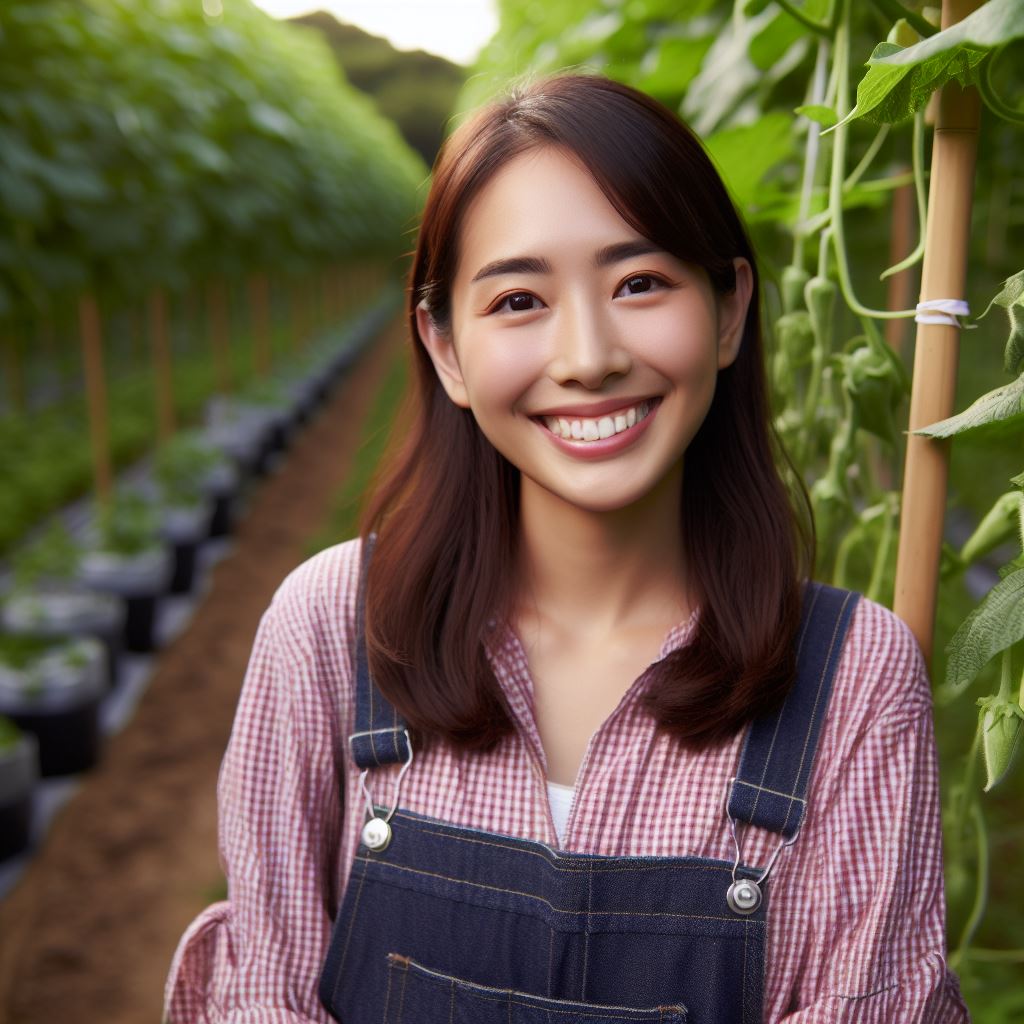Introduction
Sustainable wine making is the practice of producing wine in an environmentally friendly and socially responsible manner.
It has gained significant importance and popularity in the wine industry due to its positive impact on the environment and its ability to meet consumer demands for sustainable products.
In this blog post, we will focus on the concept of vineyard dreams and how sustainable wine making plays a crucial role in achieving them.
By adopting sustainable practices, vineyard owners can create thriving ecosystems, conserve resources, and produce high-quality wines that resonate with environmentally conscious consumers.
Sustainability in wine making encompasses various aspects, including organic and biodynamic farming, water and energy conservation, biodiversity preservation, and ethical labor practices.
It aims to minimize chemical inputs, reduce carbon emissions, and promote natural methods that enhance soil health and biodiversity.
The growing popularity of sustainable wine making can be attributed to the increasing awareness among consumers about the environmental impacts of their choices.
As people become more conscious of their carbon footprint, they seek out products that align with their values, including sustainably produced wines.
Moreover, sustainable practices benefit both the environment and the wine producers.
They help to create resilient vineyards, reduce the risk of soil erosion, and promote long-term sustainability.
Additionally, sustainable wine making can improve the overall quality of the wine by ensuring vineyard health, enhancing flavor profiles, and expressing unique terroir characteristics.
In the following sections, we will delve deeper into the specific sustainable practices employed in vineyard dreams, highlighting their benefits and providing examples of successful sustainable wine making initiatives.
Together, let’s explore the transformative power of sustainable wine making in fulfilling vineyard dreams.
Understanding Sustainable Wine Making
Sustainable wine making and its principles
Sustainable wine making has gained significant attention in recent years as wine producers and consumers increasingly prioritize environmental and social responsibility.
This approach to wine production goes beyond simply growing organic grapes. It encompasses a set of principles and practices aimed at minimizing negative impacts and promoting long-term sustainability.
At its core, sustainable wine making seeks to strike a balance between environmental stewardship, social equity, and economic viability.
By adhering to sustainable practices, wine producers can conserve natural resources, protect biodiversity, and mitigate climate change.
These practices typically include reducing the use of agrochemicals, optimizing water and energy consumption, and adopting natural pest control methods.
Environmental, social, and economic benefits of sustainable practices
One of the main benefits of sustainable wine making is its positive impact on the environment.
By minimizing synthetic inputs and embracing organic and biodynamic farming techniques, wine producers can help preserve soil health and prevent water pollution.
Sustainable practices also contribute to the preservation of ecosystems, fostering biodiversity and ensuring the long-term health of vineyards.
Furthermore, sustainable wine making has significant social advantages.
It promotes fair labor practices, ensuring the well-being and safety of vineyard workers.
By engaging with local communities, wine producers can contribute to their economic development and support social initiatives.
Sustainable practices also aim to enhance the overall quality of life for workers and their families, fostering social equity and inclusion.
From an economic perspective, sustainable wine making offers a range of benefits.
By reducing the dependence on agrochemicals and costly inputs, wine producers can achieve cost savings.
Additionally, sustainable wines are often in high demand due to the increasing consumer preference for environmentally and socially responsible products.
This demand can result in premium pricing and increased market opportunities for sustainable wine producers.
Moreover, by adopting sustainable practices, wine producers can ensure the long-term viability and competitiveness of the industry as a whole.
How sustainable wine making goes beyond organic farming
It is important to note that sustainable wine making goes beyond the organic certification.
While organic farming is a crucial component of sustainability, sustainable wine making takes a broader approach.
It considers the entire life cycle of wine production, from vineyard management to transportation and packaging.
This holistic perspective allows wine producers to address the social, environmental, and economic aspects of sustainability comprehensively.
In short, sustainable wine making is a multifaceted approach that prioritizes responsible wine production.
It encompasses principles aimed at minimizing negative impacts on the environment, society, and economy.
By practicing sustainability in the wine industry, producers can benefit from environmental conservation, social responsibility, and economic stability.
Read: Agroforestry on a Small Scale: Farmer’s View
The Role of Vineyards in Sustainable Wine Making
Vineyards play a crucial role in the wine making process, serving as the foundation for sustainable practices.
They face unique challenges and opportunities for sustainability, particularly in regards to soil and water management.
Here is an overview of the significance of vineyards in sustainable wine making:
Transform Your Agribusiness
Unlock your farm's potential with expert advice tailored to your needs. Get actionable steps that drive real results.
Get StartedThe Significance of Vineyards
- Vineyards are the fundamental source of grapes, the key ingredient in wine production.
- The quality and characteristics of grapes determine the overall quality and taste of the wine.
- By implementing sustainable practices in vineyards, winemakers can enhance both grape quality and wine flavor.
- Vineyards provide critical habitat for various plant and animal species, promoting biodiversity in the ecosystem.
- They contribute to the preservation of natural resources and help protect the environment.
Unique Challenges and Opportunities for Sustainability
- Vineyards face climate-related challenges such as extreme temperatures, droughts, and changing rainfall patterns.
- These challenges require innovative solutions to ensure the long-term sustainability of vineyards.
- However, vineyards also have unique opportunities to mitigate climate change and adapt to its effects.
- They can act as carbon sinks, capturing and storing carbon dioxide through vineyard management practices.
- Vineyards can also serve as corridors for biodiversity, connecting different habitats and supporting wildlife.
Sustainable Practices Specific to Vineyards
- Soil management is crucial for sustainable vineyards, as healthy soil promotes grapevine growth and resilience.
- Cultivating cover crops between rows helps prevent erosion, enhances soil fertility, and reduces the need for synthetic fertilizers.
- Composting grape marc (leftover grape skins, seeds, and stems) provides natural fertilizers and reduces waste.
- Water management is another key aspect of sustainability in vineyards, considering the water-intensive nature of grape cultivation.
- Installing efficient irrigation systems and using precision irrigation techniques can optimize water usage and minimize waste.
- Conserving water through rainwater harvesting and recycling can further reduce the vineyard’s environmental impact.
- Integrated Pest Management (IPM) strategies are essential for sustainable pest control in vineyards.
- By encouraging natural predators and employing mechanical weed control techniques, pesticide use can be minimized.
Vineyards are at the heart of sustainable wine making.
The unique challenges they face necessitate innovative practices and proactive approaches to preserve the environment and produce high-quality grapes.
Through sustainable vineyard management, winemakers can create wines that reflect both the distinct terroir and environmental responsibility.
Read: Beating Drought: A Texas Farmer’s Tale

Implementing Sustainable Practices in the Vineyard
In order to transition to sustainable winemaking, several steps need to be taken:
- Evaluate current practices and identify areas for improvement.
- Develop a sustainability plan, outlining specific goals and strategies.
- Train and educate vineyard workers about sustainable practices.
- Implement changes gradually, starting with small pilot projects.
- Monitor and measure the impact of the new practices on the vineyard.
- Continuously adjust and refine the sustainability plan based on feedback and results.
Planning and goal-setting are crucial for vineyards looking to embrace sustainability
- Goal-setting provides a clear direction and motivation for the vineyard staff.
- By establishing measurable goals, vineyards can track progress and assess their effectiveness.
- Planning allows vineyards to prioritize actions and allocate resources efficiently.
- It helps identify potential barriers and challenges, enabling proactive problem-solving.
- By setting sustainability goals, vineyards can demonstrate their commitment to environmental stewardship.
There are various sustainable practices that vineyards can adopt
- Cover cropping: Planting specific crops between the vine rows to improve soil health, reduce erosion, and promote biodiversity.
- Integrated pest management: Utilizing natural predators and biological controls to manage pest populations, minimizing the need for chemical pesticides.
- Water conservation: Implementing irrigation systems that optimize water usage and reduce wastage.
- Composting: Recycling vineyard waste and organic matter to create nutrient-rich compost for soil enrichment.
- Energy efficiency: Installing renewable energy sources, such as solar panels, to power vineyard operations.
- Biodiversity preservation: Creating habitat corridors and preserving natural areas to support wildlife and biodiversity.
- Waste management: Implementing recycling and waste reduction programs to minimize environmental impact.
- Carbon footprint reduction: Employing carbon offset strategies and implementing sustainable transportation practices.
Each of these practices contributes to the overall sustainability of the vineyard and can have significant environmental benefits.
Transitioning to sustainable winemaking requires a commitment to long-term planning, continuous improvement, and innovation.
It is a journey that requires collaboration, education, and the willingness to adapt to new practices.
By implementing sustainable practices in the vineyard, wineries can not only reduce their environmental footprint but also produce high-quality wines that reflect their commitment to a more sustainable future.
Read: Small Farm, Big Debt: A Financial Saga
Supporting Biodiversity and Conservation
Biodiversity plays a crucial role in vineyards, contributing to the sustainability and success of wine-making.
The Importance of Biodiversity
- Biodiversity promotes a healthy ecosystem by balancing pests, diseases, and natural cycles.
- Various plant and animal species in vineyards create a diverse web of life.
- Greater biodiversity leads to enhanced soil health and fertility.
- It also aids in improving water efficiency while reducing erosion and nutrient loss.
Preserving and Enhancing Biodiversity
- Planting native species is a key method to preserve and enhance biodiversity in vineyards.
- Native plants attract pollinators, support beneficial insects, and provide habitat for wildlife.
- Creating wildlife corridors and maintaining natural areas within vineyard landscapes help preserve biodiversity.
- Using cover crops and reducing chemical inputs are also effective ways to promote biodiversity.
Conservation Initiatives in Sustainable Wine Making
- Conservation initiatives play a vital role in sustainable wine making practices.
- Protected areas within vineyard properties help preserve native plants and animals.
- Collaboration with conservation organizations can lead to successful biodiversity conservation.
- Implementing sustainable farming practices, such as organic or biodynamic methods, supports conservation efforts.
Overall, supporting biodiversity and conservation is essential for sustainable wine making.
It not only benefits the environment but also contributes to the high-quality and unique flavors of the wines produced.
Read: Organic Trials: One Farmer’s Shift Story
Showcasing Success Stories
In the world of sustainable wine making, there are several vineyards that have successfully implemented eco-friendly practices.
These success stories serve as shining examples of how it is possible to produce high-quality wine while minimizing the impact on the environment.
Let’s take a look at some of these inspiring vineyards:
Napa Valley Sustainable Vineyards
Located in the picturesque countryside, Napa Valley Sustainable Vineyards has taken impressive strides towards sustainability.
Through the use of organic farming methods and renewable energy sources, they have significantly reduced their carbon footprint.
This vineyard serves as a prime example of environmental consciousness in the wine industry.
Sonoma Green Vines Winery
Sonoma Green Vines Winery has embraced sustainable practices with remarkable success.
By employing innovative water conservation techniques and implementing biodiversity-friendly cultivation methods, they have not only protected the ecosystem but also improved the quality of their wines.
Their commitment to sustainability has yielded positive outcomes for both the vineyard and the planet.
Organic Vineyards of Oregon
Organic Vineyards of Oregon stands out as a beacon of sustainable wine making.
By eliminating the use of synthetic pesticides and herbicides, they have created a haven for biodiversity on their land.
This organic approach has not only enhanced the flavors of their wines but has also gained them recognition for their commitment to environmental stewardship.
These success stories of sustainable vineyards have proven that eco-friendly practices in wine making can yield positive outcomes beyond just environmental benefits.
Let’s take a closer look at some of the positive outcomes:
Enhanced Wine Quality
One major positive outcome of sustainable wine making efforts is the improvement in the overall quality of the wines produced.
By prioritizing the health of the vineyard and adopting organic cultivation methods, vineyards have seen a noticeable enhancement in the flavors and aromas of their wines.
Consumers are increasingly recognizing and appreciating the superior quality of sustainably produced wines.
Conservation of Resources
Sustainable vineyards actively focus on conserving resources such as water and energy.
By implementing water-saving techniques, such as drip irrigation, and utilizing renewable energy sources like solar power, vineyards have not only minimized their impact on the environment but have also reduced operational costs.
These resource conservation efforts contribute to the long-term viability and success of vineyards.
Positive Brand Image
Vineyards that prioritize sustainability and successfully implement eco-friendly practices often build a positive brand image.
Consumers are increasingly conscious of the environmental impact of their purchasing decisions and appreciate vineyards that align with their values.
By showcasing their commitment to sustainability, these vineyards attract environmentally conscious consumers and create a loyal customer base.
Success stories from sustainable vineyards serve as a powerful source of inspiration and motivation for others in the wine industry.
The positive outcomes achieved by these vineyards demonstrate that sustainability and profitability can go hand in hand.
By sharing these success stories, vineyards can inspire others to follow suit and adopt eco-friendly practices.
Moreover, the success stories also highlight the fact that implementing sustainable practices is not only beneficial for the environment but also for the overall success of the vineyard.
The enhanced wine quality, resource conservation, and positive brand image resulting from sustainability efforts can lead to long-term profitability and resilience in an increasingly competitive industry.
In general, the success stories of sustainable vineyards emphasize the potential for positive outcomes when eco-friendly practices are embraced.
These stories serve as beacons of inspiration, motivating others in the industry to embark on their own sustainable wine making journey.
By showcasing the benefits and achievements of sustainable vineyards, we can encourage and inspire the wine industry to collectively prioritize environmental sustainability.
Conclusion
Sustainable wine making offers numerous benefits and holds great potential for the future.
Throughout this blog post, we have explored the key points of sustainable wine making, including the use of organic farming methods, biodiversity conservation, and reducing environmental impact.
By adopting sustainable practices, wineries can not only produce high-quality wines but also contribute to the preservation of the planet.
The relevance of sustainable wine making cannot be overstated.
With increasing concerns about climate change and the need for more environmentally-friendly practices in various industries, sustainable wine making stands as a shining example.
It showcases how businesses can be successful while being mindful of their environmental footprint.
Therefore, it is important for readers to support and explore sustainable wine options.
By choosing wines from wineries that prioritize sustainable practices, consumers can contribute to the demand for a more sustainable wine industry.
Additionally, supporting these wineries helps to create a market that encourages other wine makers to adopt sustainability measures.
Overall, sustainable wine making is not just a trend but a necessity for a better future.
Let us embrace this movement, support sustainable wineries, and raise a glass to a greener tomorrow.
Cheers to enjoying wine that not only tastes delicious but also helps to protect our planet.
Showcase Your Farming Business
Publish your professional farming services profile on our blog for a one-time fee of $200 and reach a dedicated audience of farmers and agribusiness owners.
Publish Your Profile



